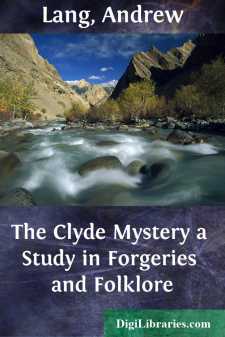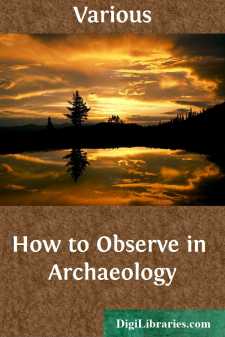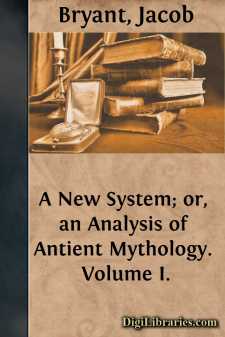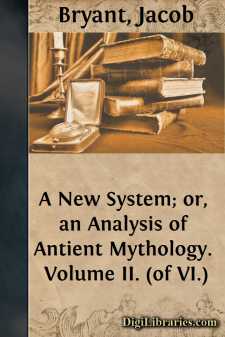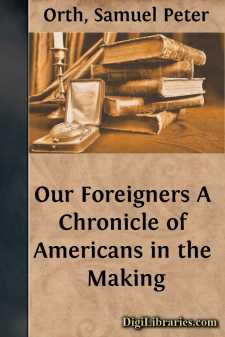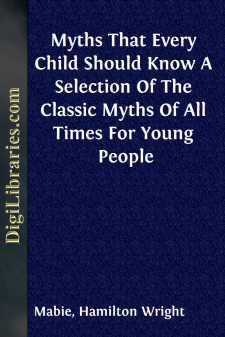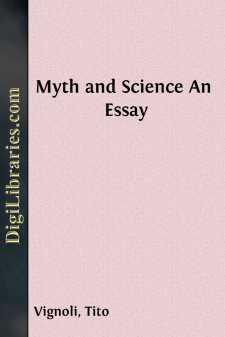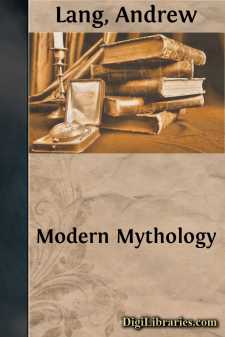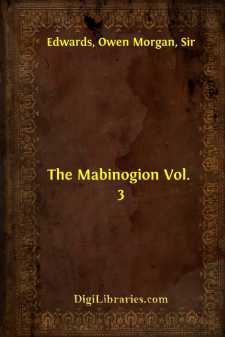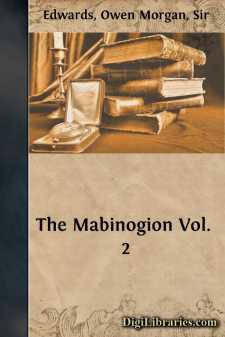Social Science
Social Science Books
Sort by:
by:
Andrew Lang
PREFACE The author would scarcely have penned this little specimen of what Scott called “antiquarian old womanries,” but for the interest which he takes in the universally diffused archaic patterns on rocks and stones, which offer a singular proof of the identity of the working of the human mind. Anthropology and folklore are the natural companions and aids of prehistoric and proto-historic...
more...
by:
Various
CHAPTER I INTRODUCTORY The hints which it is the object of this volume to convey are not meant for experienced archaeologists. They are rather addressed to those who, while anxious to observe and record the antiquities which they may see on their travels, are likely, owing to lack of training, to miss things that may be of importance, or, having observed them, to bring home an imperfect record. It is...
more...
by:
Jacob Bryant
The earliest authentic account we can obtain of the birth of this learned and celebrated writer, is from the Register Book of Eton College, in which he is entered "of Chatham, in the county of Kent, of the age of twelve years, in 1730,"—consequently, born in 1718. Whence a difference has arisen between the dates in this entry, and the inscription on his monument, hereafter given, we are...
more...
by:
Jacob Bryant
PHŒNIX and PHŒNICES. As there has been much uncertainty about the purport and extent of these terms; and they are of great consequence in the course of history; I will endeavour to state their true meaning. Phoinic, or Poinic, was an Egyptian and Canaanitish term of honour; from whence were formed Φοινιξ, Φοινικες, Φοινικοεις of the Greeks, and Phoinic, Poinicus, Poinicius of...
more...
CHAPTER I Long before men awoke to the vision of America, the Old World was the scene of many stupendous migrations. One after another, the Goths, the Huns, the Saracens, the Turks, and the Tatars, by the sheer tidal force of their numbers threatened to engulf the ancient and medieval civilization of Europe. But neither in the motives prompting them nor in the effect they produced, nor yet in the...
more...
INTRODUCTION In many parts of the country when the soil is disturbed arrow heads are found. Now, it is a great many years since arrow heads have been used, and they were never used by the people who own the land in which they appear or by their ancestors. To explain the presence of these roughly cut pieces of stone we must recall the weapons with which the Indians fought when Englishmen, Frenchmen,...
more...
by:
Tito Vignoli
CHAPTER I. THE IDEAS AND SOURCES OF MYTH. Myth, as it is understood by us, and as It will be developed and explained in this work, cannot be defined in summary terms, since its multiform and comprehensive nature embraces and includes all primitive action, as well as much which is consecutive and historical in the intelligence and feelings of man, with respect to the immediate and the reflex...
more...
by:
Andrew Lang
INTRODUCTION It may well be doubted whether works of controversy serve any useful purpose. ‘On an opponent,’ as Mr. Matthew Arnold said, ‘one never does make any impression,’ though one may hope that controversy sometimes illuminates a topic in the eyes of impartial readers. The pages which follow cannot but seem wandering and desultory, for they are a reply to a book, Mr. Max Müller’s...
more...
PWYLL PRINCE OF DYVED. Pwyll, prince of Dyved, was lord of the seven Cantrevs of Dyved; and once upon a time he was at Narberth his chief palace, and he was minded to go and hunt, and the part of his dominions in which it pleased him to hunt was Glyn Cuch. So he set forth from Narberth that night, and went as far as Llwyn Diarwyd. And that night he tarried there, and early on the morrow he rose...
more...
GERAINT THE SON OF ERBIN. Arthur was accustomed to hold his Court at Caerlleon upon Usk. And there he held it seven Easters, and five Christmases. And once upon a time he held his Court there at Whitsuntide. For Caerlleon was the place most easy of access in his dominions, both by sea and by land. And there were assembled nine crowned kings, who were his tributaries, and likewise earls and...
more...


